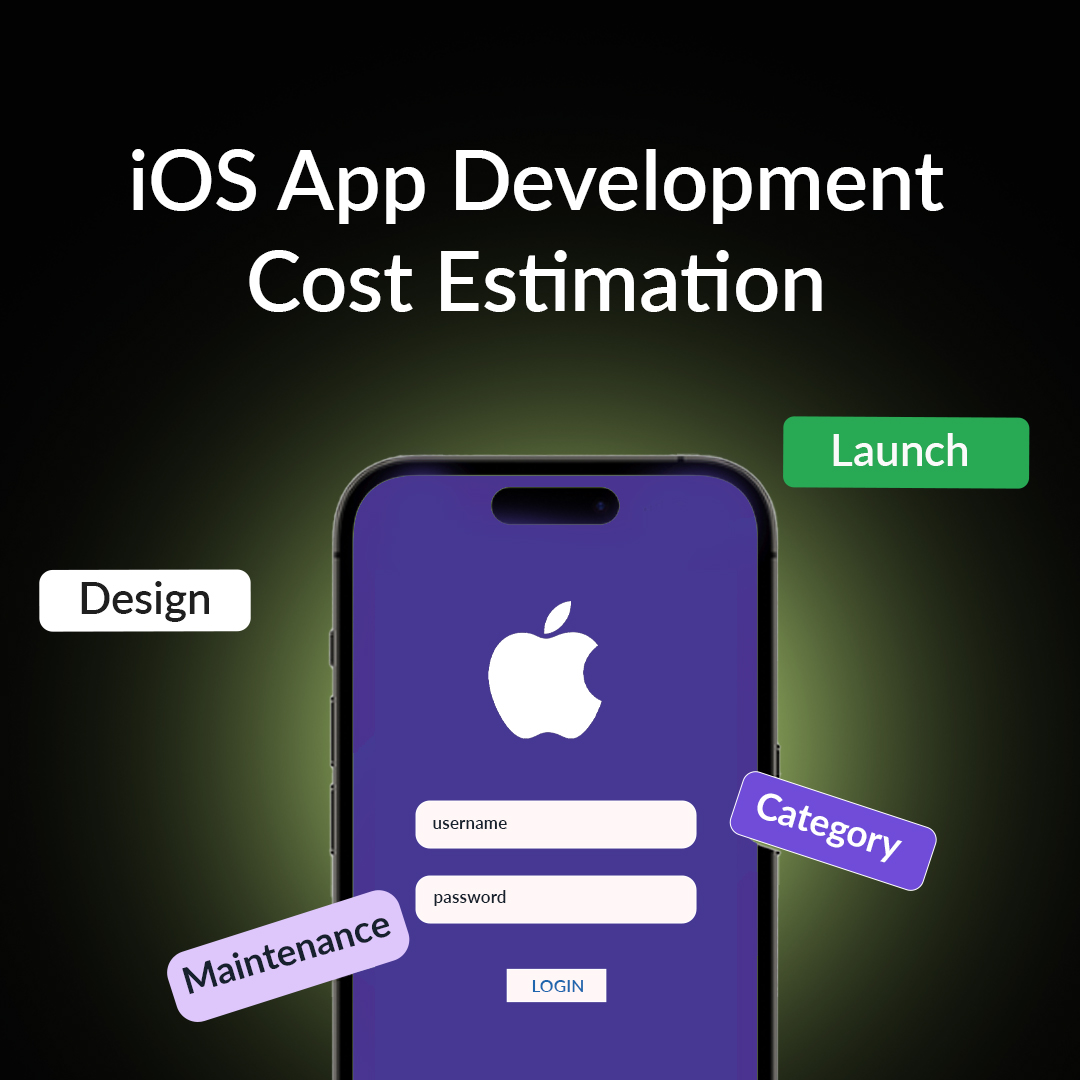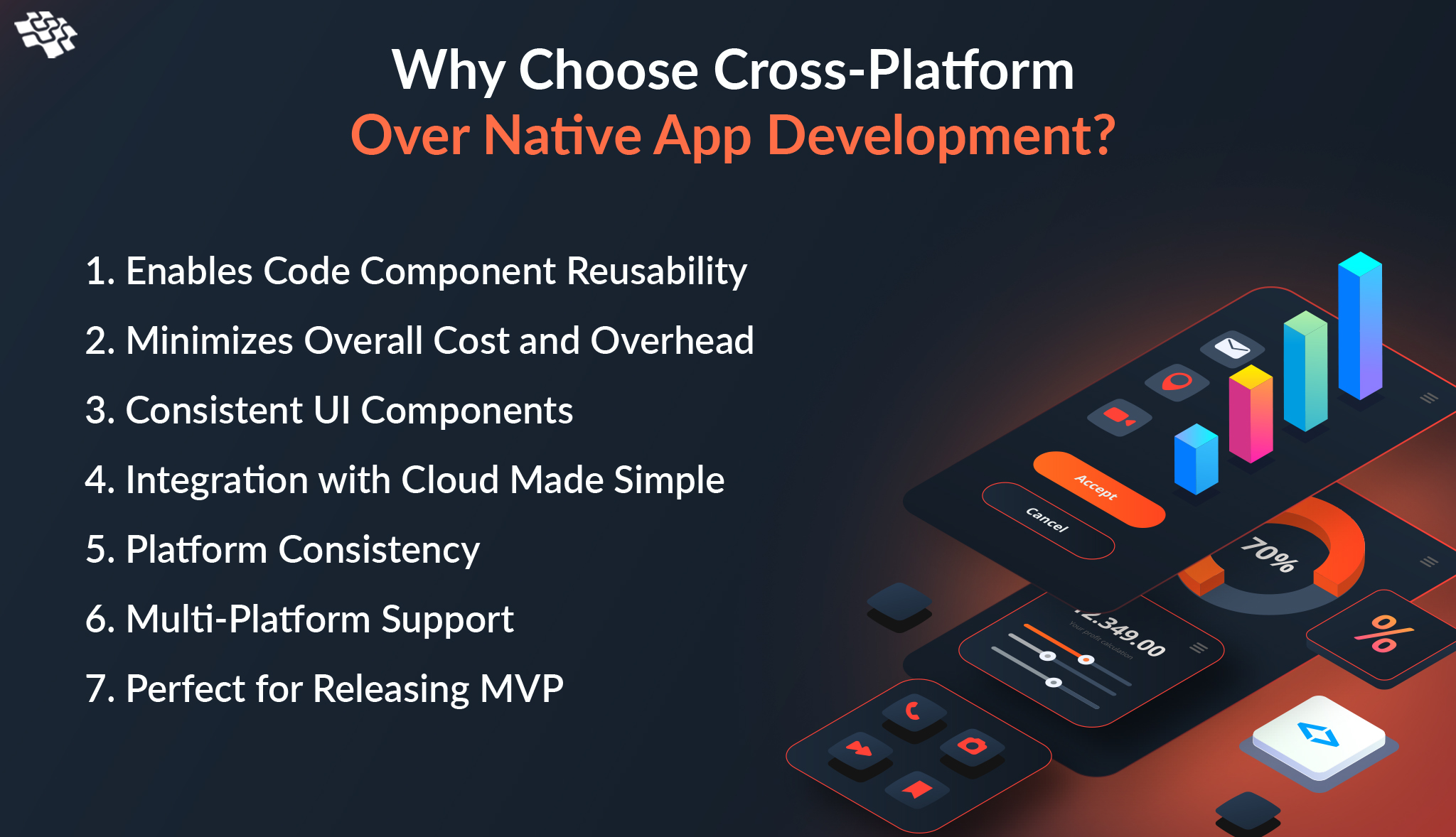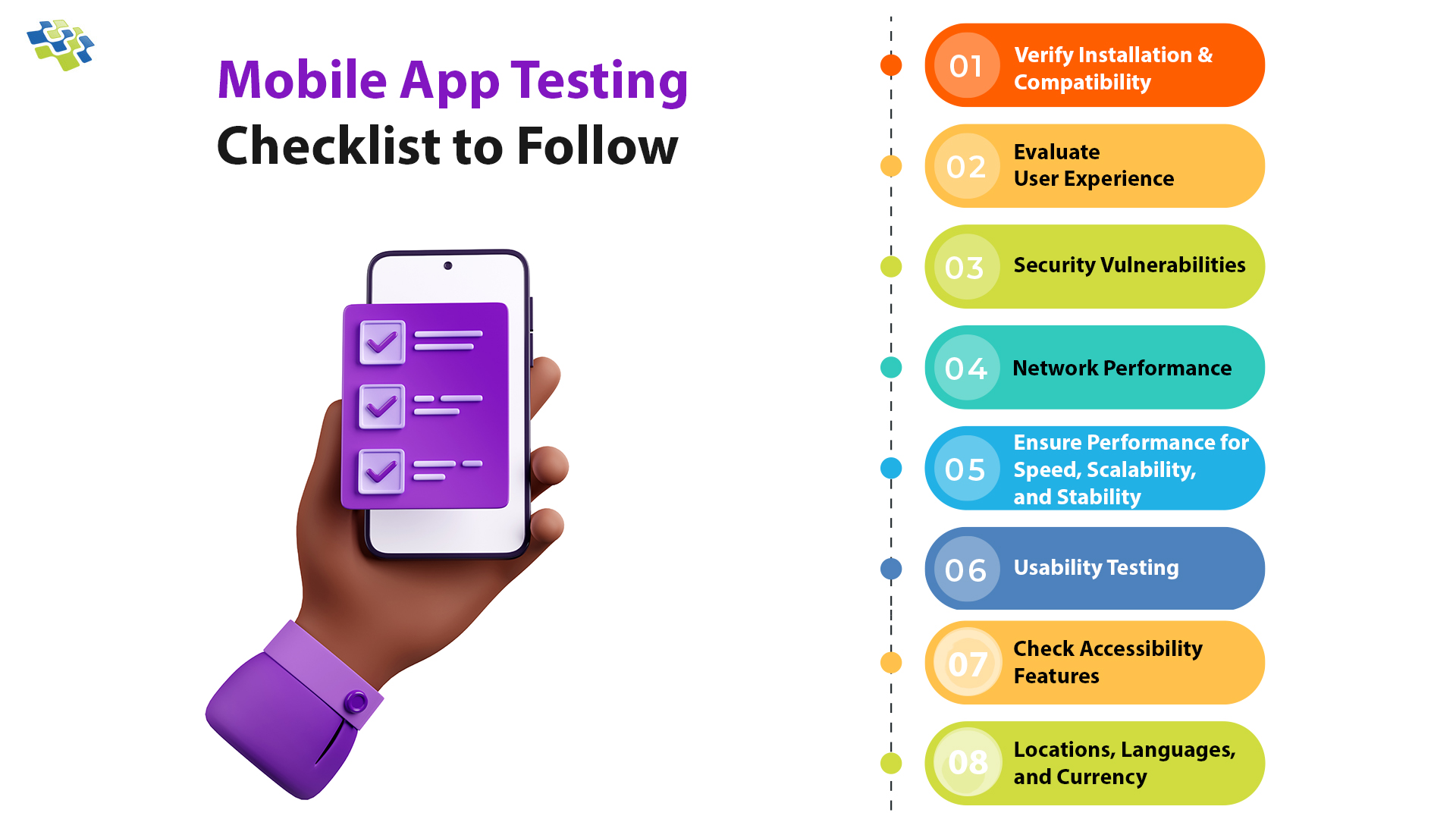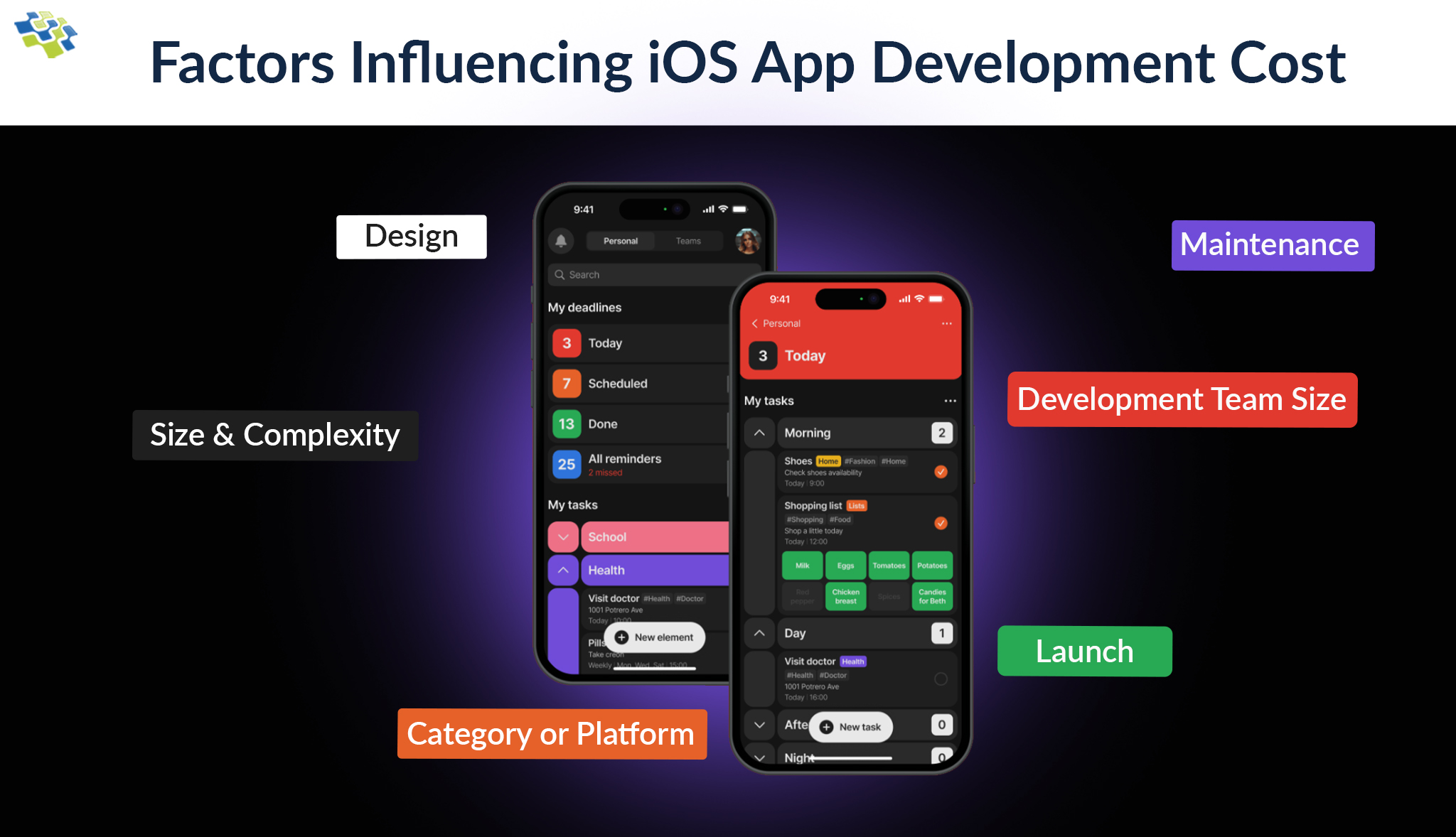How Much Does It Cost to Develop an iOS App?
Understanding these factors is paramount for effective budget planning and project success. The average cost to develop an iphone app varies widely, but with careful consideration, it can be managed efficiently.

Trouble-Free iOS App Development: Let Our iOS App Development Services Tackle Device Compatibility & Solve App Store Rejection for You!

“The Apple App Store works as a centralized platform for app promotion, distribution, and management: users get recommendations for apps they might be interested in, can access top rankings for app categories, as well as get reminders of apps’ latest updates.”- Statista
iOS App Development Market Research
Considering the cost of developing an iOS app is essential for businesses aiming to meet the rising demand for creative mobile solutions. With over 1.8 million apps, Apple’s App Store is evidence of the platform’s dynamism. The market for mobile applications worldwide is expected to grow from $228.98 billion in 2023 to $510.39 billion in 2027. That translates to an 18.4% compound annual growth rate. In the US or UK, expenses typically range from $40,000 to $500,000. To create a standout iOS app within budget constraints, prioritizing cost-effective approaches is crucial. Rather than solely relying on intuition and local developer hiring, focus on minimizing expenses without compromising functionality or quality. This strategic approach ensures efficient resource allocation and maximizes the return on investment for your iOS app development project.
iOS App Development Cost Estimation Formula
The cost of developing a mobile app, for iOS or Android, is determined by the number of hours required to produce and the time resources required to determine that amount. The iOS app development cost calculator uses the following formula:
(Platform Wise App Development Hours + UI/UX Design Hours + Backend Server Hours) x Hourly Rate of iOS App Developers
Several factors influence the expense of iOS app development. Let’s delve into each element to understand their impact on costs.
 Factors Influencing Cost to Develop an iOS App
Factors Influencing Cost to Develop an iOS App
Analyzing the cost to develop an iOS app involves evaluating numerous factors from app complexity to team size. By exploring each aspect, we gain insights into how they influence overall expenses, aiding in determining precise development costs.
1. App Size & Complexity or Features
As complexity rises, development time and resource consumption elevate correspondingly. More intricate apps demand additional effort and resources, driving up costs. iOS app complexity hinges on several factors:
- Feature diversity and quantity
- Third-party API or service incorporation
- Custom backend or data storage requisites
Features range from basic functionalities to advanced capabilities, each requiring meticulous planning and implementation. Third-party integrations necessitate compatibility considerations and potentially complex implementation processes. UI/UX design complexity influences user engagement and satisfaction, demanding careful attention to detail and user-centric design principles. Custom backend development or data storage solutions add another layer of complexity, requiring expertise and tailored solutions. Considering these factors holistically enables accurate cost estimation and resource allocation, ensuring successful iOS app development within budget and timeline constraints.
2. App Design
The complexity of an app’s design significantly influences its development cost, particularly concerning the User Interface (UI) and User Experience (UX). A more intricate design, involving unique animations, visuals, and transitions, demands additional time and effort from the development team, thus increasing the iOS app development price. Let’s break down the primary factors affecting design complexity:
- User Interface (UI): Basic apps typically require straightforward screens with simple graphic elements like text fields and buttons, resulting in a basic UI. In contrast, complex apps feature unique images, advanced animations, and intricate user flows, necessitating a more sophisticated UI design. Development costs rise as modern UI design must cater to various screen sizes and device orientations, adding complexity and effort.
- User Experience (UX): UX encompasses all aspects of the user’s interaction with the app, including responsiveness, ease of use, and overall satisfaction. Crafting a satisfactory UX involves extensive research into the target market, user behavior, and industry trends, leading to increased time and resource investment. Consequently, the cost of iOS app development escalates as ensuring a positive user experience requires substantial commitment.
- Brand Identity: Aligning the app’s design with the company’s brand identity demands a deep understanding of the brand’s core principles. Integrating brand elements complicates the design process and contributes to higher development costs for iOS apps.
3. Category of iOS App
The cost to develop an iOS app varies across different market niches and sectors, impacting your budget directly. Each iOS application is meticulously crafted to cater to the preferences and needs of its intended users, directly impacting its design, functionality, and overall development expenses. By identifying the specific category within the Apple App Store—such as education, lifestyle, health, business, gaming, or food delivery—developers can tailor their app to align with industry standards and user expectations. Statista’s analysis underscores the popularity of categories like games, business, education, and utilities, emphasizing the importance of market research in accurately estimating development costs. Therefore, comprehending the intricacies of the chosen category is paramount for gauging the investment required to create an iOS app successfully. By factoring in these considerations, businesses can make informed decisions regarding budget allocation and resource allocation for their iOS app development endeavors.
4. App Launch
The launch phase significantly impacts the total cost of developing an iOS app. It encompasses various marketing activities like influencer collaborations, social media ads, and app store optimization (ASO). These efforts typically range from $7,000 to $30,000 or more, depending on the scope of the campaigns. Allocating a budget for marketing is crucial for app exposure and user acquisition. However, striking a balance between launch expenses and expected ROI is essential. Underinvesting may limit app success while overinvesting without a clear strategy can lead to unnecessary costs. Thus, considering the cost of developing an iOS app in the end, it’s vital to budget wisely for the launch phase to maximize app visibility and achieve desired outcomes without overspending.
5. App Maintenance
Post-launch, ongoing support, and maintenance are essential expenses for your iOS app. These cover regular updates for bug fixes, enhancements, and new features. Typically, annual maintenance costs range from 15% to 20% of the initial development expense. These expenses ensure your app remains secure, up-to-date, and competitive in the dynamic app landscape. To sustain long-term success, it’s crucial to factor in these recurring costs when budgeting for your project. Understanding these factors aids in estimating the overall cost to develop an iOS app in the end, enabling informed financial decisions and minimizing unexpected expenses. It’s important to note that these are estimates, and actual costs may vary based on project specifics, location, and the expertise of your development team. By accounting for these factors, you can enhance the likelihood of a successful app launch while managing your budget effectively.
6. App Development Team Size
The cost to develop an iOS app hinges on your choice between hiring an established iOS app development firm or engaging a freelance iPhone app developer. Opting for a reputable mobile app software development company with a full-stack iOS app development team is recommended. While hiring individual freelancers might seem cost-effective, it can incur higher expenses due to their hourly rates. Collaborating with a comprehensive team ensures expertise across all aspects of iOS app development at a reasonable price. By investing in a proficient team, you’re likely to achieve a better return on investment in the end. It’s crucial to prioritize the long-term success and quality of your app over short-term cost-saving measures. Thus, selecting a reliable and experienced development partner is key to managing the cost of developing an iOS app effectively and ensuring its success in the competitive app market.
Hidden Factors of iOS App Development Cost
Additional charges beyond basic development and integration include payment gateway fees, updates, and third-party API expenses. It’s crucial to account for these costs to accurately estimate the total expenditure of developing an iOS app.
- Payment Gateway Fees: Most payment gateway providers offer either subscription-based pricing or transaction fees. When budgeting for your app, consider these ongoing costs to accurately estimate expenses. Whether it’s a fixed subscription or per-transaction fee, incorporating payment gateway charges ensures a comprehensive budget for your iOS app development.
- App Updates: Include update costs for your iOS app and its payment gateway in your budget. Like other software, both require periodic upgrades and maintenance. Factoring in these expenses ensures a comprehensive budget plan for your app development project.
- Third-Party Services: Consider integrating additional third-party services like fraud prevention or analytics tools based on your app’s requirements. These services can impact the final cost of development. Including them in your budget ensures you’re prepared for any additional expenses associated with enhancing your app’s functionality and security.
Step-by-Step Breakdown of the iOS App Development Cost Estimation
- Conceptualization: In this phase, the goal is to understand your app’s requirements and vision. This involves creating a detailed project roadmap with clear schedules and resource lists to ensure successful completion. The aim is to have a thorough plan in place before proceeding with development.
- UI/UX Design/Prototyping: In this step, interactive prototypes and wireframes are created to visualize the app’s interface and user experience. Final design elements like icons, images, and animations are also developed. The complexity of design, number of screens, and required assets influence the total cost of iOS app development.
- App Development: In this phase, front-end developers focus on creating the user interface, whose cost depends on complexity and screen count. Back-end developers build server-side components and integrate databases, with costs influenced by infrastructure complexity. Testing involves QA and performance testing to detect and fix bugs, ensuring app stability.
- Deployment & App Store Submission: Deployment and app store submission costs for your iOS app are typically included in the overall expense of development. This encompasses fees associated with launching your app on the App Store, ensuring a seamless process from development to making your app available to users.
How Can NextGen Invent Help You in iOS App Development?
At NextGen Invent, a leading iOS mobile app development company, we tailor our cost estimates for iOS mobile application development based on your project’s unique needs. After understanding your requirements and expectations, we calculate the required hours, technologies, and team resources. Once you approve the preliminary estimate, we create a detailed project document, establish frameworks, and prepare all necessary documentation. Our comprehensive approach ensures transparency and accuracy in pricing. If you’re considering monetization strategies for your mobile app, we’re here to help with expert guidance. Partner with NextGen Invent for reliable iOS app development services that align with your vision and budget.
Ready to turn your iOS app idea into reality? Contact us today for customized development solutions and hire iOS app developers to create something amazing together!
Related Blogs

7 Reasons to Choose Cross Platform App Development
Cross platform app development simplifies the daunting task of developing applications, especially for startups overwhelmed by various challenges. In today’s digital age, establishing digital platforms is vital for global outreach.

A Step-by-Step Guide for Mobile App Development
In today’s world, smartphones have become ubiquitous, transcending geography and industries. It is universally acknowledged that engaging with consumers through mobile devices is the most effective way to capture their attention, generate interest in a brand, and drive sales.

The Ultimate Mobile App Testing Checklist
Mobile applications have become indispensable tools for businesses, providing a convenient and efficient means of delivering products and services to customers. To ensure a seamless customer experience, enterprises are heavily investing in mobile apps
Stay In the Know
Get Latest updates and industry insights every month.
 Factors Influencing Cost to Develop an iOS App
Factors Influencing Cost to Develop an iOS App